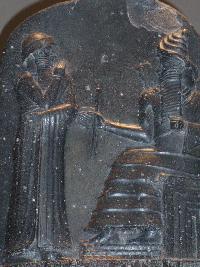A writer's view on seeing one's work in translation Thread poster: Evans (X)
|
|---|
Evans (X)
Local time: 02:07
Spanish to English
+ ...
| Mailand 
Local time: 03:07
Member (2009)
Italian to German
+ ...
| Thank you for posting this | Jun 27, 2011 |
I am not a literary translator, but an avid reader of non-translated (English) fiction - I often find that when I happen to read translated texts, I don´t like them as much as the original, but once I actually found it improved! What I think was particularly interesting, is the mention of even non-translated texts being considerably "changed" by the environment they are read in, never really thought about this. Thanks again
| | | |
I heard (from a translator) that Wislawa Szymborska, who was awarded the Nobel Prize in Literature in 1996 has said that the award was thanks to her Swedish translator.
PSALM
Oh, the leaking borders of man-made states.
How many clouds float by with impunity;
how much desert sand shifts from one land to another;
how many boulders tumble down mountain sides onto foreign soil in provocative leaps.
Need I mention every single bird that flies... See more I heard (from a translator) that Wislawa Szymborska, who was awarded the Nobel Prize in Literature in 1996 has said that the award was thanks to her Swedish translator.
PSALM
Oh, the leaking borders of man-made states.
How many clouds float by with impunity;
how much desert sand shifts from one land to another;
how many boulders tumble down mountain sides onto foreign soil in provocative leaps.
Need I mention every single bird that flies in the face of frontiers
or alights on a roadblock at the border?
A simple sparrow, perched, its tail abroad
while its beak faces us. And look how it bobs cheekily to and fro.
Among innumerable insects I single out the ant;
scurrying between the border guard’s left and right jackboot blithely ignoring the challenge “Who goes there?”
Oh, to register clearly, at a glance, this confusion on every continent.
Isn’t that a privet on the far bank
smuggling its hundred-thousandth leaf across the river?
And who, if not the impudent long-armed octopus
would dare disrupt the sacred bounds of territorial waters?
And how can we talk of order at all
when the very placement of the stars
leaves us doubting which ones shine on us?
Not to speak of the fog’s reprehensible drifting.
And dust blowing all over the steppes
as if they hadn’t been partitioned.
And voices coasting on obliging airwaves,
tempting chirps, and meaningful murmurings.
Only what is human can truly be alien.
The rest is mixed vegetation, subversive moles, and wind. ▲ Collapse
| | | | Suzan Hamer 
Netherlands
Local time: 03:07
English
+ ...
| Yes, thank you. | Jun 27, 2011 |
This sentence stood out to me:
"When it comes to books of high merit, the translated sentence that fails to relay some nuance or music of the original, is tinged with loss; the translated sentence that doesn't understand the nuance or music to begin with is negligent; the untranslated sentence is a terrible deprivation."
| | |
|
|
|
Jack Doughty 
United Kingdom
Local time: 02:07
Russian to English
+ ...
In memoriam | Author thought translation better than original | Jun 27, 2011 |
The author of this Spanish poem was kind enough to say that he thought my translation was better than his original.
Aprendizaje
Un día me enseñaron
que la luz es un flujo de fotones,
que el color no es color sino frecuencia,
que la brisa es un juego de presiones...
Me enseñaron que el mágico arco iris
es un caso vulgar de refracción,
y el tránsito de Febo por los cielos?
la prosaica terrestre rotación!
... See more The author of this Spanish poem was kind enough to say that he thought my translation was better than his original.
Aprendizaje
Un día me enseñaron
que la luz es un flujo de fotones,
que el color no es color sino frecuencia,
que la brisa es un juego de presiones...
Me enseñaron que el mágico arco iris
es un caso vulgar de refracción,
y el tránsito de Febo por los cielos?
la prosaica terrestre rotación!
Las estrellas no son diamantes puros.
Otra vez engañosas ilusiones!
Son esferas de hidrógeno que irradian
por sus termonucleares reacciones.
Y el sonido es el aire que se mueve
con vibraciones longitudinales
(aprendí a calcular sus ecuaciones
para colmo de males)
Tuve una simple angustia y me dijeron
¨son conflictos del Yo con el ambiente¨.
Ahora tengo psicosis paranoica...
qué angustia inteligente!
Dormir es un estado fisiológico...
Al diablo con Morfeo! Todo es lógico!
Y así, sobre libros estudiando
en jornadas sin ocio,
fui cambiando ilusiones por verdades...
No sé si hice negocio!
_____________________________
Learning the Hard Way
They taught me one day in the class
That light is just photons one sees;
That chlorophyll colours the grass;
Pressure difference causes the breeze.
That a rainbow, beyond all surmise,
Is refraction, needs no explanation.
And Phoebus traversing the skies
Is simply the planet’s rotation.
The stars are not diamond jewels.
Another poetic illusion!
They are hydrogen spheres, which are fuelled
By intense thermonuclear fusion.
And sound is just air on the move,
In linear waves and vibrations;
And to make matters worse, I can prove
The truth of all this by equations.
I felt on the brink of a void.
They said “Ego and Id have upset you.”
(But the fact that you feel paranoid
Doesn’t mean that they aren’t out to get you!)
Sleep is something that’s physiological.
Forget about Morpheus! Be logical!
So, studying books in my youth,
With no leisure, just work to endure,
I’ve been trading illusions for truth.
Good business? I’m not at all sure! ▲ Collapse
| | | | RominaZ 
Argentina
English to Spanish
+ ...
| | Interesting... | Jun 27, 2011 |
Thanks for posting the article, Gilla, and George and Jack, thanks for the poems. I can't comment on the Spanish original but I like your English version, Jack
It's interesting to see the writer's perspective, but in my view, it raises some interesting questions too:
- like the original authors, literary translators are writers too (with a foot in each culture) and so they too only have "sentences" at their disp... See more Thanks for posting the article, Gilla, and George and Jack, thanks for the poems. I can't comment on the Spanish original but I like your English version, Jack
It's interesting to see the writer's perspective, but in my view, it raises some interesting questions too:
- like the original authors, literary translators are writers too (with a foot in each culture) and so they too only have "sentences" at their disposal, to use the writer's term. Personally, I think there's more going on than just "sentences" in a text.
- also, there is the question of what a sentence is and its value? I love stream-of-consciousness writing but I assume translating Virginia Woolf isn't the easiest thing to do. Sentence length/structure can be considered cultural constructs.
- and what if the nuance in the sentence doesn't translate at all and just alienates the end reader?
I assume there is also the issue of who the writer's target/actual readership is in their own language and who that would be in the translation.
No doubt there are other questions but I guess that's all part of the literary production process both for the original writer and the translator, Aisha ▲ Collapse
| | | | Phil Hand 
China
Local time: 09:07
Chinese to English
| Every reader is different, so... | Jun 27, 2011 |
First I should say, Jack, that's a great translation of the poem. I love stanza three, I think it's a really perfect rendition of the original.
I'm interested by this part of Shamsie's article:
So even though they're all reading it in English, a kind of translation is taking place as it moves from one context to another...the book he wrote shift[s] in meaning between one reader and the next...
I agree with this idea very strongly, b... See more First I should say, Jack, that's a great translation of the poem. I love stanza three, I think it's a really perfect rendition of the original.
I'm interested by this part of Shamsie's article:
So even though they're all reading it in English, a kind of translation is taking place as it moves from one context to another...the book he wrote shift[s] in meaning between one reader and the next...
I agree with this idea very strongly, but I can't work out what it means for the translator. Does it mean
a) that readers in a foreign country are going to have a very different understanding of the book, so the translator is justified in making strategic alterations to convey the original meaning, or
b) that everyone reads the book differently, and the only constant shared between them is the text, so anything the translator does to deviate from the text is a betrayal?
I've just been contacted about doing my first translation of a book, so these issues are very much in my mind! ▲ Collapse
| | |
|
|
|
Evans (X)
Local time: 02:07
Spanish to English
+ ...
TOPIC STARTER | Jack's poem and translation | Jun 27, 2011 |
Thank you very much, Jack, for sharing the poem and your translation. I think your translation is superb. It goes to show just what good translation can do and be for all of us readers.
| | | | Nesrin 
United Kingdom
Local time: 02:07
English to Arabic
+ ...
| Interesting questions | Jun 27, 2011 |
Phil Hand wrote: I'm interested by this part of Shamsie's article: So even though they're all reading it in English, a kind of translation is taking place as it moves from one context to another...the book he wrote shift[s] in meaning between one reader and the next... I agree with this idea very strongly, but I can't work out what it means for the translator. Does it mean a) that readers in a foreign country are going to have a very different understanding of the book, so the translator is justified in making strategic alterations to convey the original meaning, or b) that everyone reads the book differently, and the only constant shared between them is the text, so anything the translator does to deviate from the text is a betrayal? I've just been contacted about doing my first translation of a book, so these issues are very much in my mind!
As you said, Phil, every reader is different!
Obviously, usually translators translate with a particular target culture/ readership in mind (usually their own), and depending on their approach, they may decide to "domesticate" the text to appeal to their target culture, or keep it exotic, or develop a mixed approach (ideally, in my opinion), that will neither lose the original flavour nor alienate the reader for being too exotic and unreachable.
It becomes particularly difficult though, when, as in the case mentioned in the article, a work of fiction is translated into English, or any other language that is spoken/ read across a wide spectrum of very different cultures. There is no way that the translator can adopt an approach that will appeal to this wide variety of readership without exception! I think all the translator can do is make it work for the culture he/she is familiar with. Demanding more would be extremely unfair!
This also raises a lot of other questions: why do people read translated fiction and/or fiction about different cultures? Is it to identify themselves with those cultures, to see similarities and to sympathise? Or conversely to experience very different, new cultures? And very importantly: should translators adapt their approach to what the reader wants? Or would they be betraying the source culture/ author intentions if they did?
(These issues are very close to the PhD topic I've just embarked on, so they are very much in my mind as well! ) )
-----
PS Thanks, Gilla, by the way for the interesting article!
[Edited at 2011-06-27 16:25 GMT]
| | | | To report site rules violations or get help, contact a site moderator: You can also contact site staff by submitting a support request » A writer's view on seeing one's work in translation | Wordfast Pro | Translation Memory Software for Any Platform
Exclusive discount for ProZ.com users!
Save over 13% when purchasing Wordfast Pro through ProZ.com. Wordfast is the world's #1 provider of platform-independent Translation Memory software. Consistently ranked the most user-friendly and highest value
Buy now! » |
| | Anycount & Translation Office 3000 | Translation Office 3000
Translation Office 3000 is an advanced accounting tool for freelance translators and small agencies. TO3000 easily and seamlessly integrates with the business life of professional freelance translators.
More info » |
|
| | | | X Sign in to your ProZ.com account... | | | | | |











